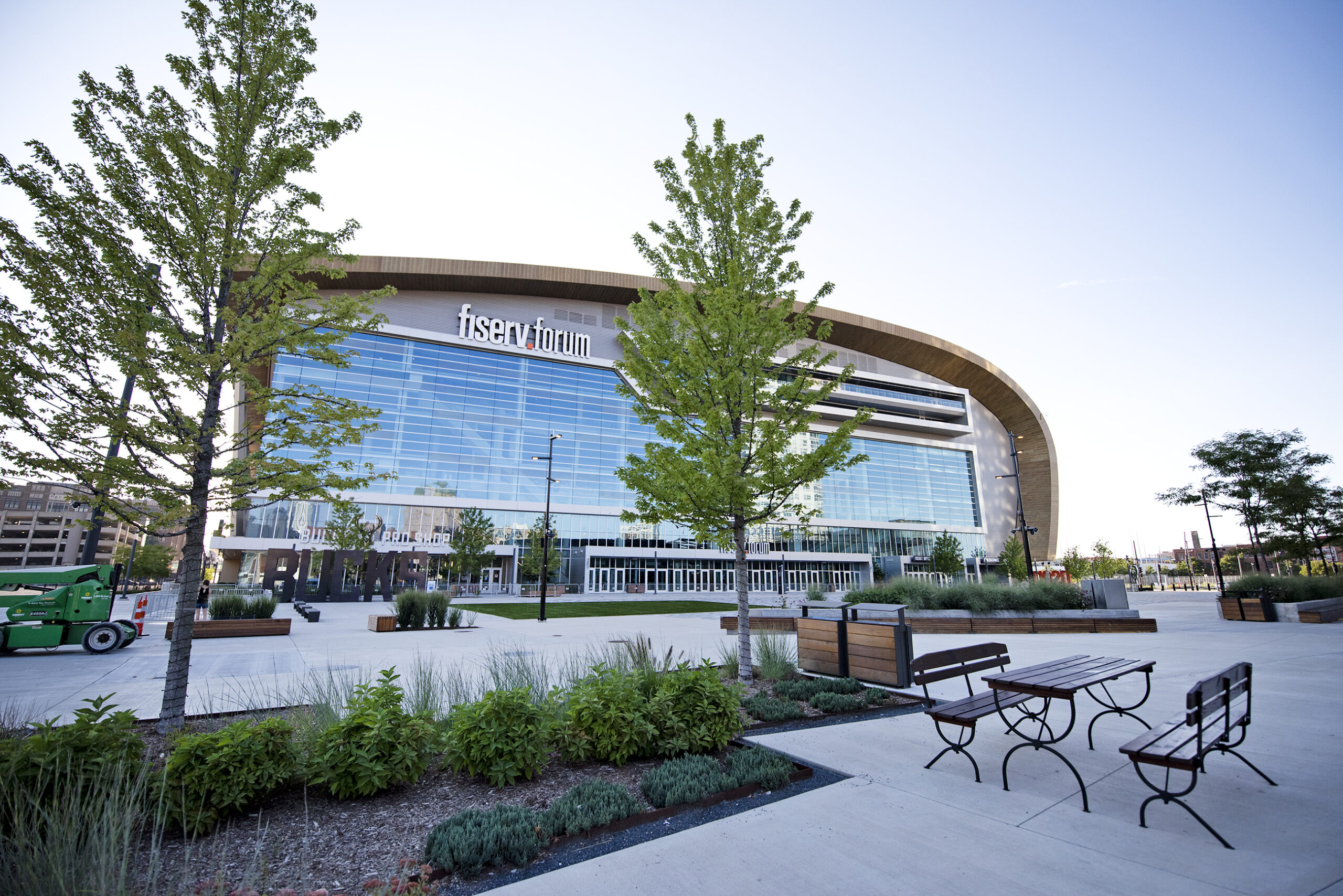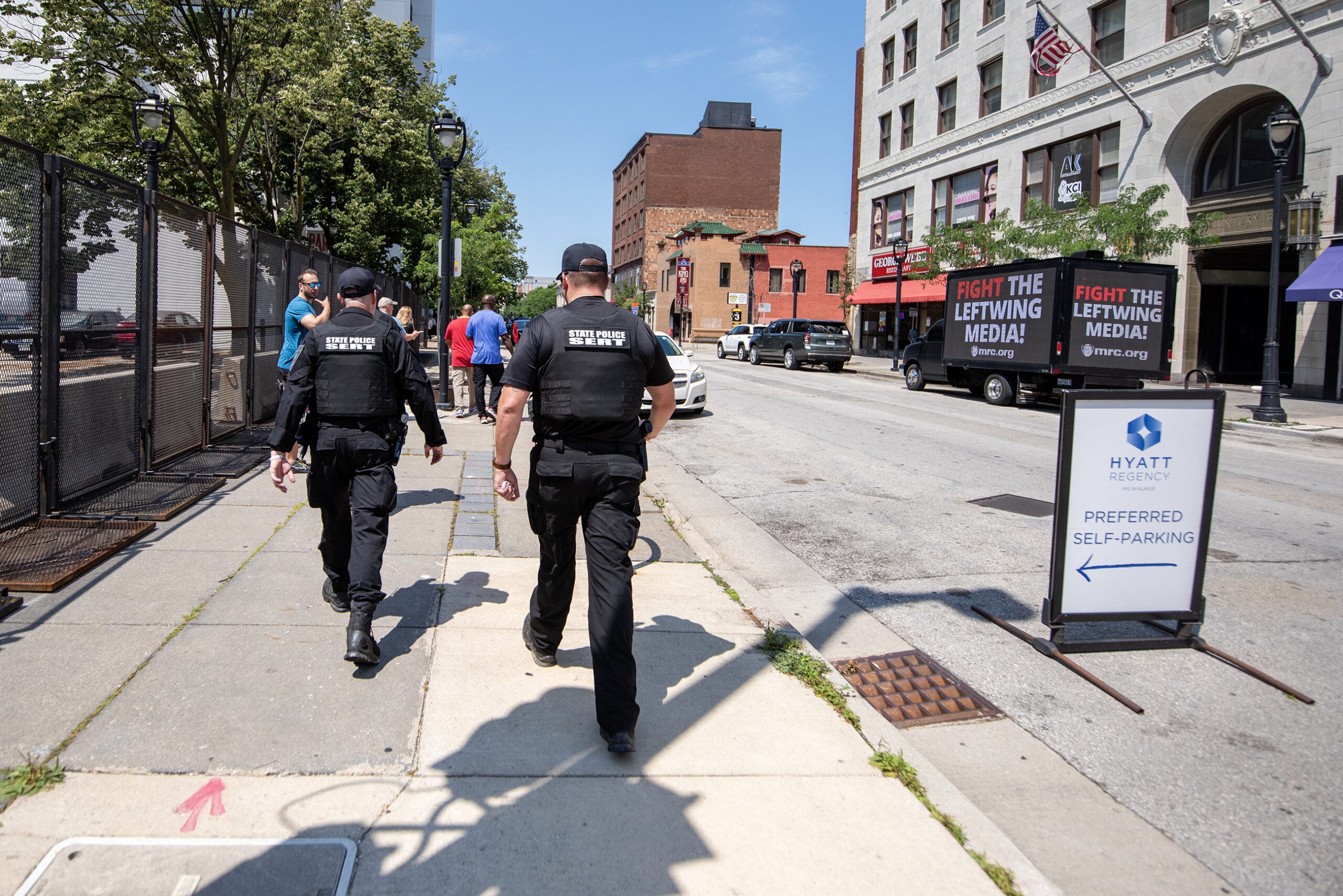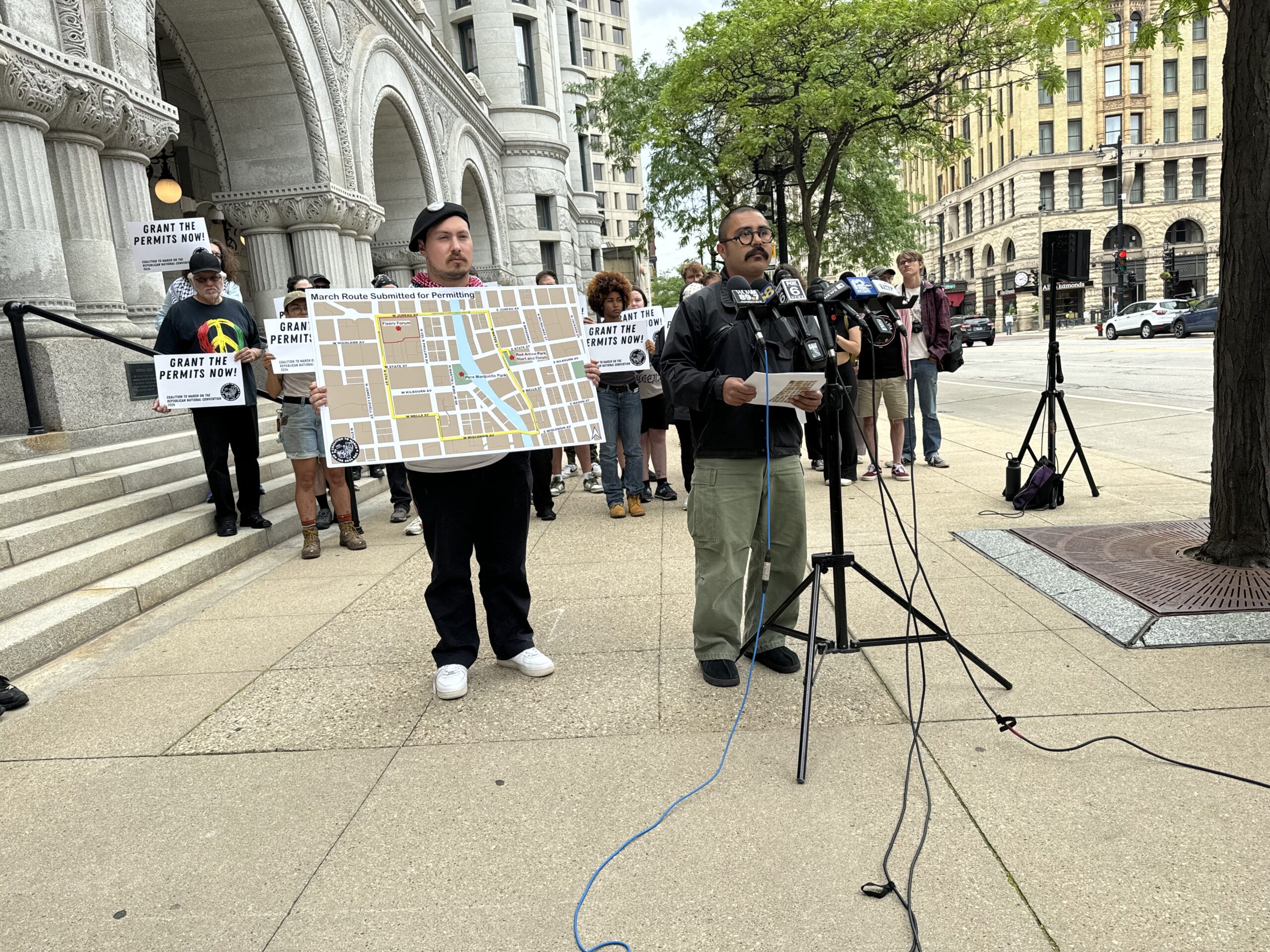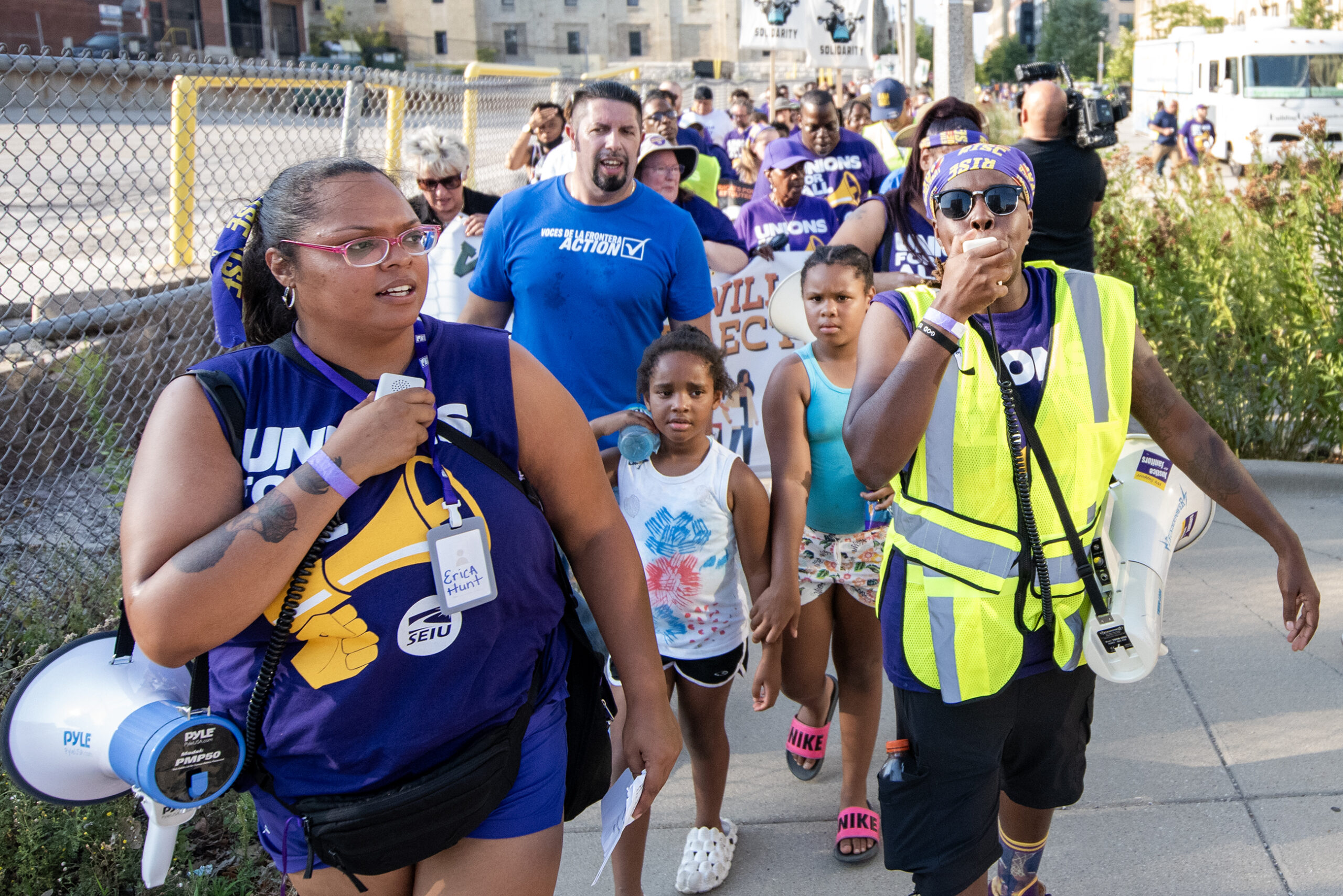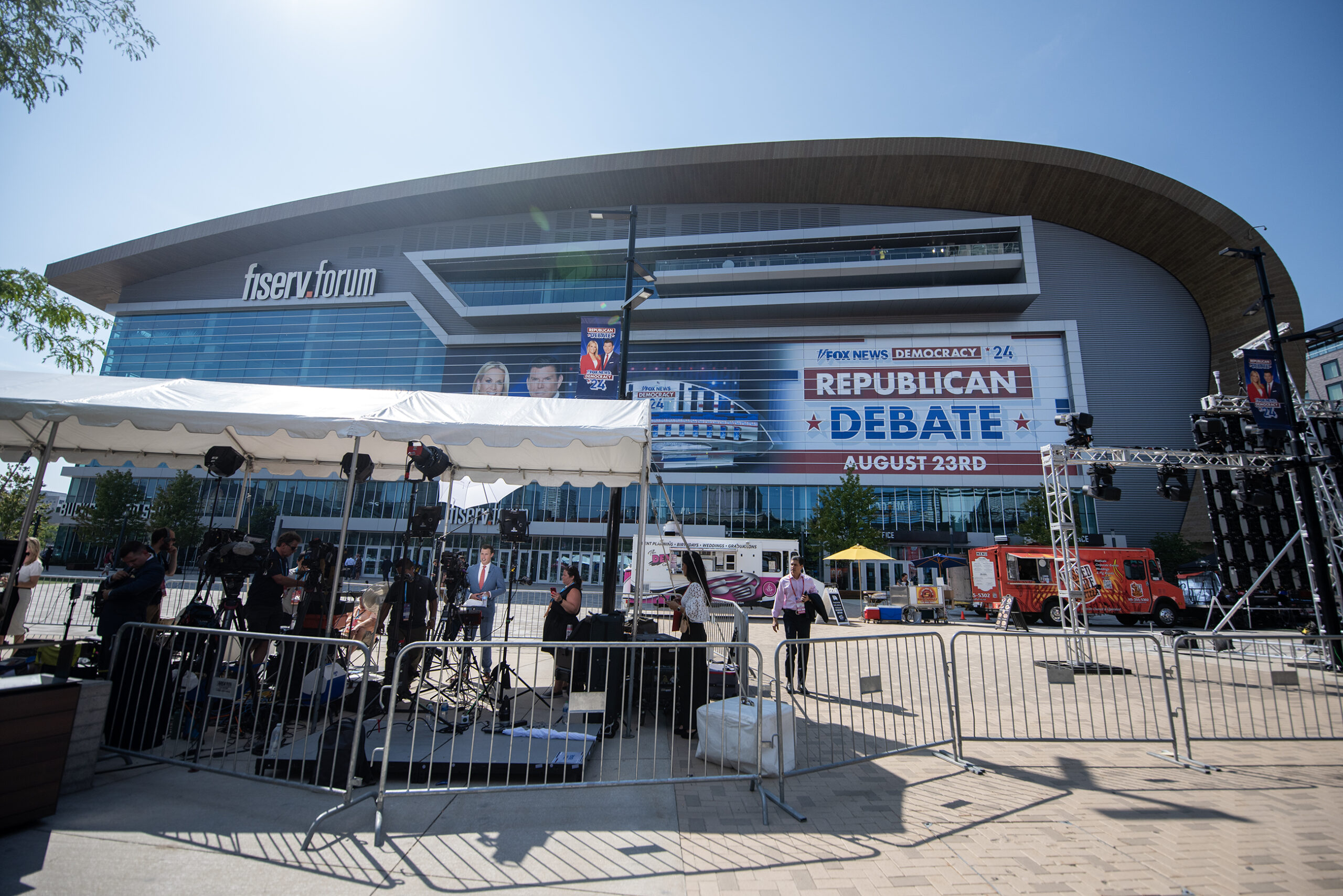Security experts say agencies must be prepared for a variety of security scenarios before, during and after the Republican National Convention in Milwaukee this summer.
The RNC is designated as a National Special Security Event by the United States Secret Service. During those events, the Secret Service assumes its mandated role as the lead agency for the design and implementation of the security plan.
The 2024 convention in Milwaukee is expected to draw 50,000 people to the city from July 15-18.
Stay informed on the latest news
Sign up for WPR’s email newsletter.
Andy Bochman works in infrastructure defense at the Idaho National Laboratory. He is contributing to critical infrastructure protection efforts surrounding the RNC.
Bochman addressed members of the Rotary Club of Milwaukee on Tuesday, and said cybersecurity must be taken as seriously as physical safety.
He said other events of this level have faced various “adversarial interests,” adding that some people are looking to “make a splash and cause a disruption kind of for the fun of it.”
But his team is also preparing for targets against critical infrastructure like electricity, natural gas and water treatment.
“We are geared up for, and sometimes do see, those highest level — tier 1 level — threats and are mobilized to defend against them,” Bochman said.
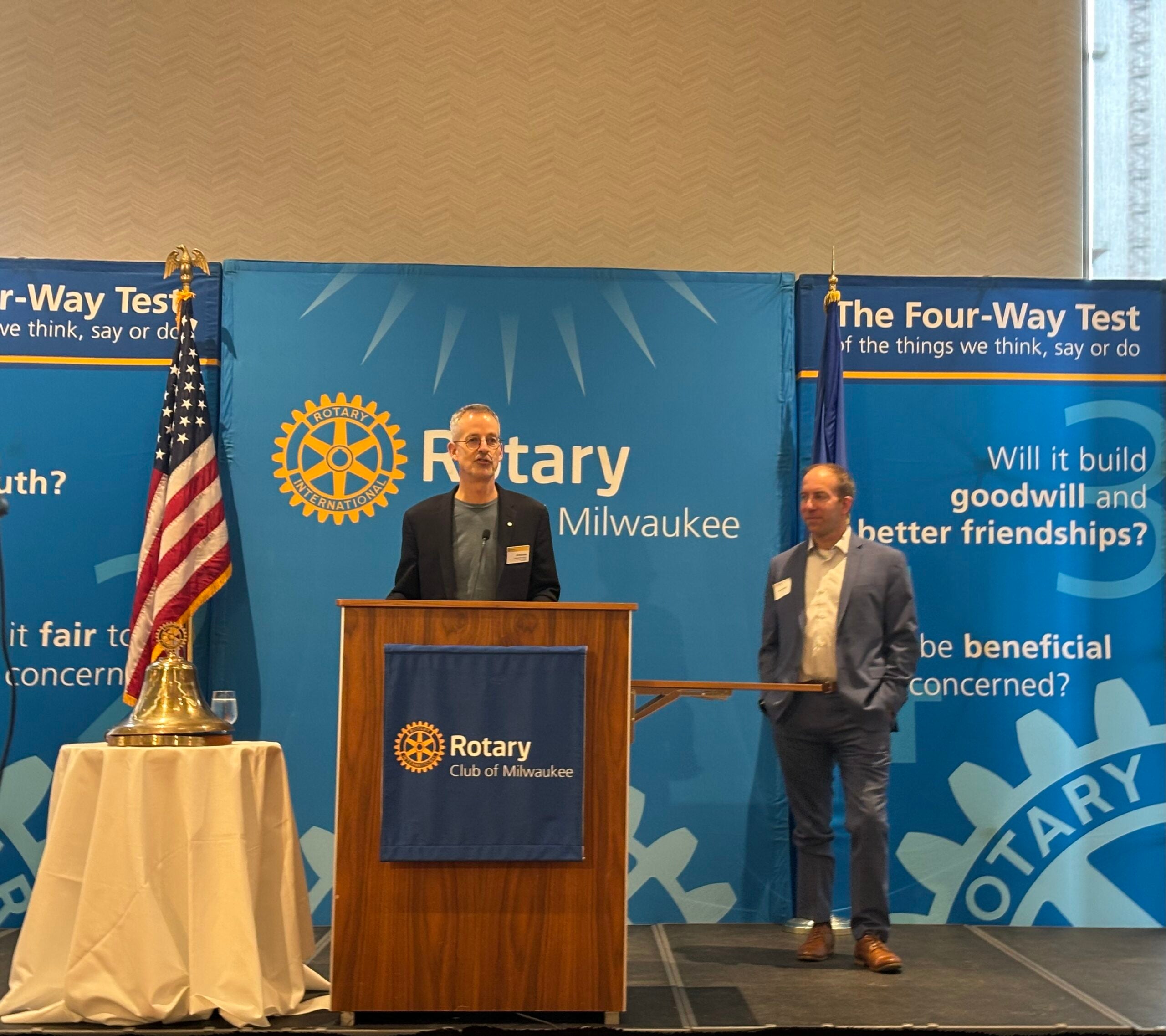
Interagency efforts emphasized
Bochman said interagency coordination is very important. The U.S. Department of Homeland Security, the U.S. Secret Service, the Federal Bureau of Investigation, the U.S. Department of Energy and local police and fire departments are some of the many agencies working together to prioritize safety.
“These folks have all been getting their equipment and their processes and procedures in place to come, or already pre-staged into Milwaukee,” Bochman said.
Typical security measures for events like this include a heavy police and often National Guard presence, police dogs for bomb detection and surveillance.
He said every organization must have a backup plan.
“Plan for that rainy day so that when it does come, you know what to do. You have a playbook ready; it’s muscle memory,” Bochman said.
John Bush with the U.S. Department of Homeland Security’s Cybersecurity and Infrastructure Security Agency said multiagency coordination is key. For more than a year, leaders in both the public and private sectors and on the local, state and federal levels have been working together to make a security plan.
“We are actively preparing for the what-ifs. And we’re looking at the full spectrum of potential threats or things that could go wrong, and then developing plans on how we’re going to respond to that,” Bush said.
Impacts of security perimeter around Fiserv Forum
The U.S. Secret Service released a diagram of the area, called a “General Impact Map,” in February. The zone takes in an area that stretches about 10 blocks from West Clybourn Street on the south to Cherry Street on the north, and about eight blocks from North Water Street on the east to North 9th Street on the west.
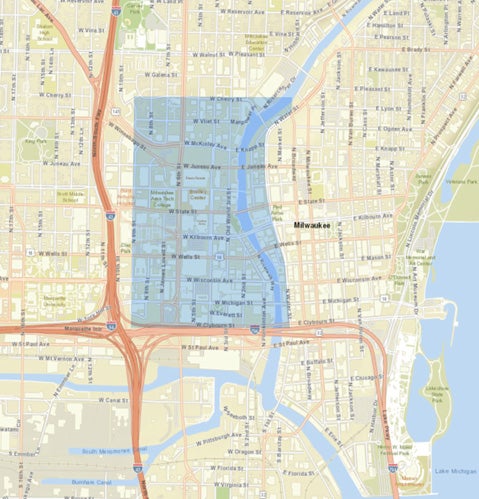
Bush said people can still access their homes and offices during the convention, but depending on the location, there could be extra security precautions like vehicle searches.
“(This impact is) not going to be terrible, but it will be substantial,” Bush said.
He said businesses should encourage employees to work remotely during the convention, if possible. All major telecom providers are working with the secret service to bolster communications infrastructure.
Two community information sessions will be offered on April 11 for residents and businesses to learn more about the security zone and how it could impact the city.
Bush said intergovernmental security efforts are nonpartisan and focused on safety for everyone.
“We want the American electoral process to happen the way it should happen, free from any sort of outside influence,” Bush said.
Wisconsin Public Radio, © Copyright 2024, Board of Regents of the University of Wisconsin System and Wisconsin Educational Communications Board.
